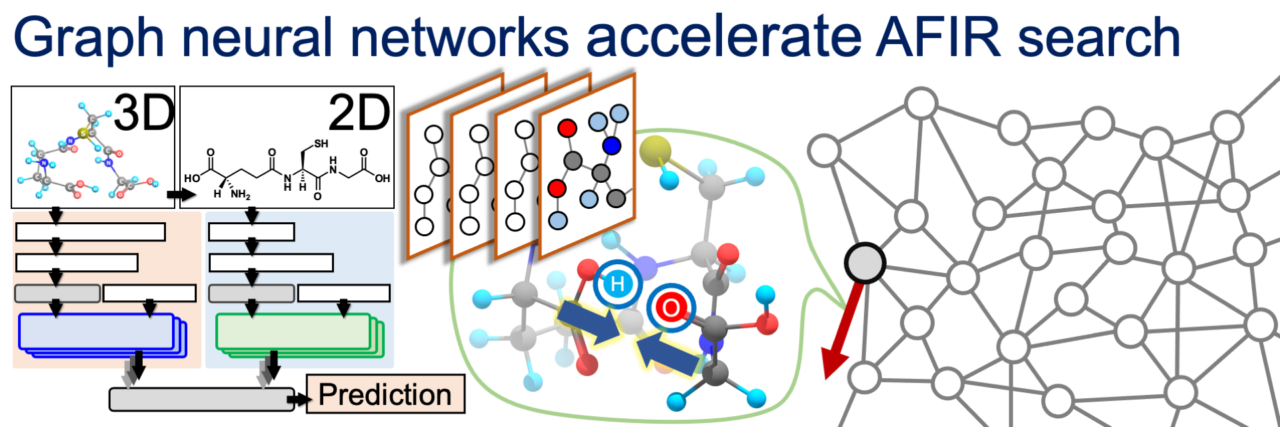Researchers from ICReDD collaborated with the Tsuda group from the University of Tokyo to accelerate automated reaction path search via the single component-artificial force induced reaction (SC-AFIR) method by using graph neural networks (GNN). When SC-AFIR is performed on a molecule, atom pairs within the molecule are randomly selected and an artificial push or pull force is applied to induce a reaction. Instead of random selection, this work uses a GNN to optimize the choice of atom pairs and force direction, which was shown to greatly improve the search efficiency for a test molecule, glutathione. Researchers then applied transfer learning by using the GNN trained on glutathione to perform SC-AFIR on the molecule tuftsin and showed even further efficiency gains. These results show how an ever-increasing pool of data can be leveraged to accelerate the exploration of chemical space.
See the full paper here.


